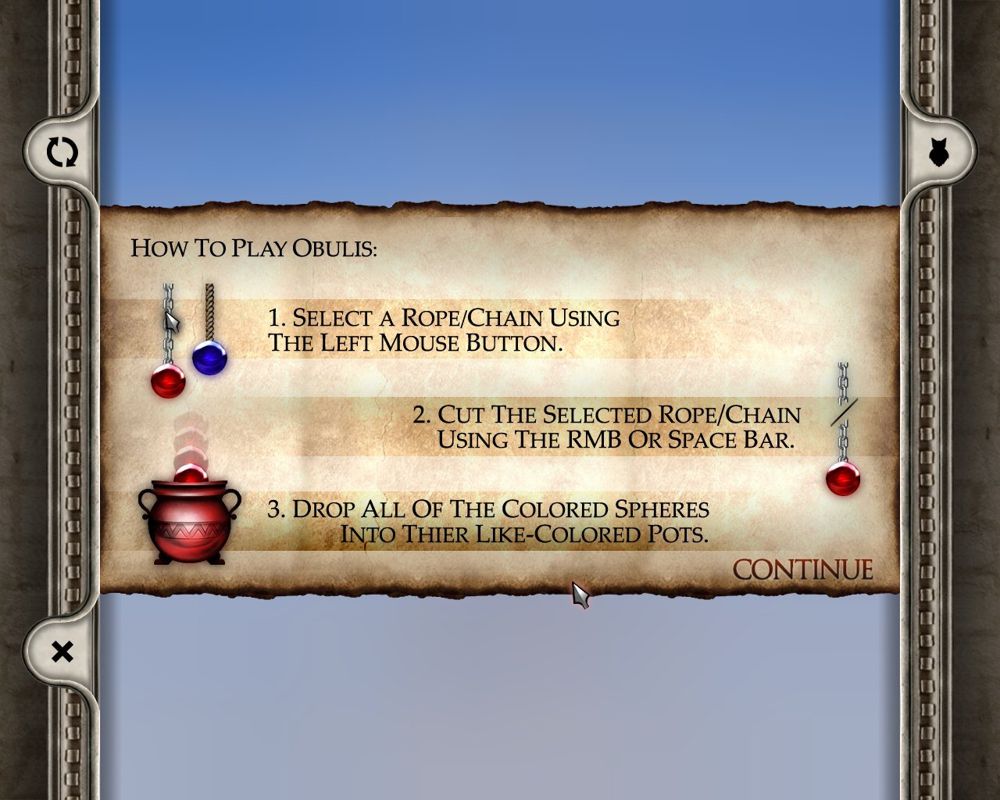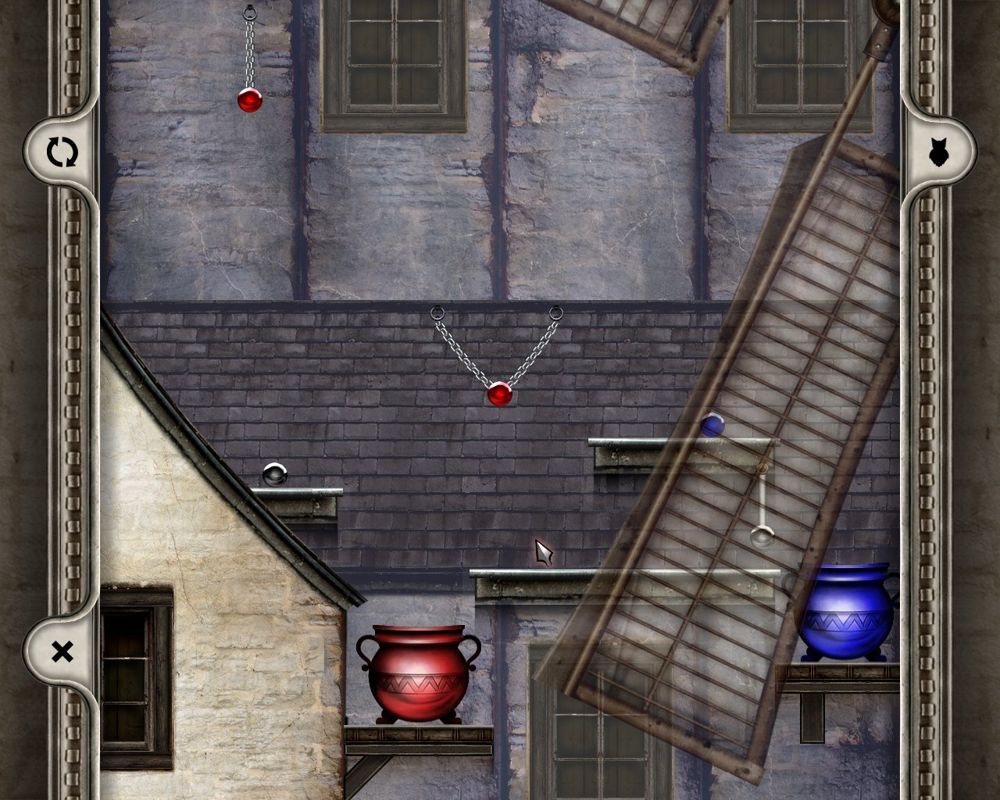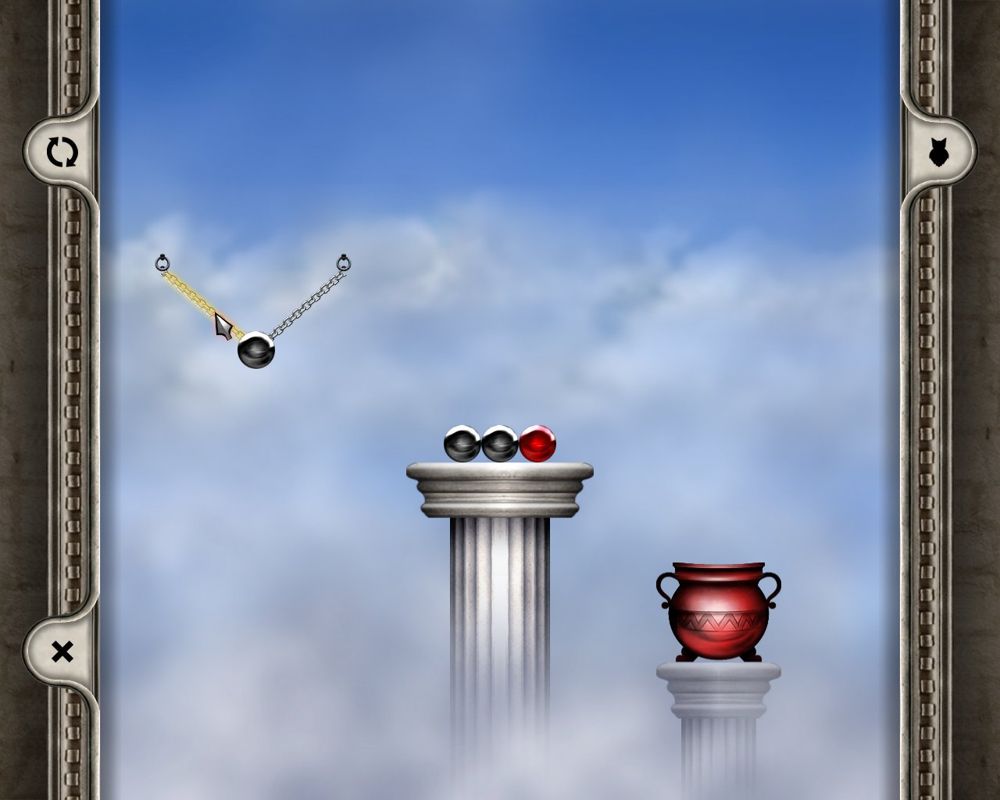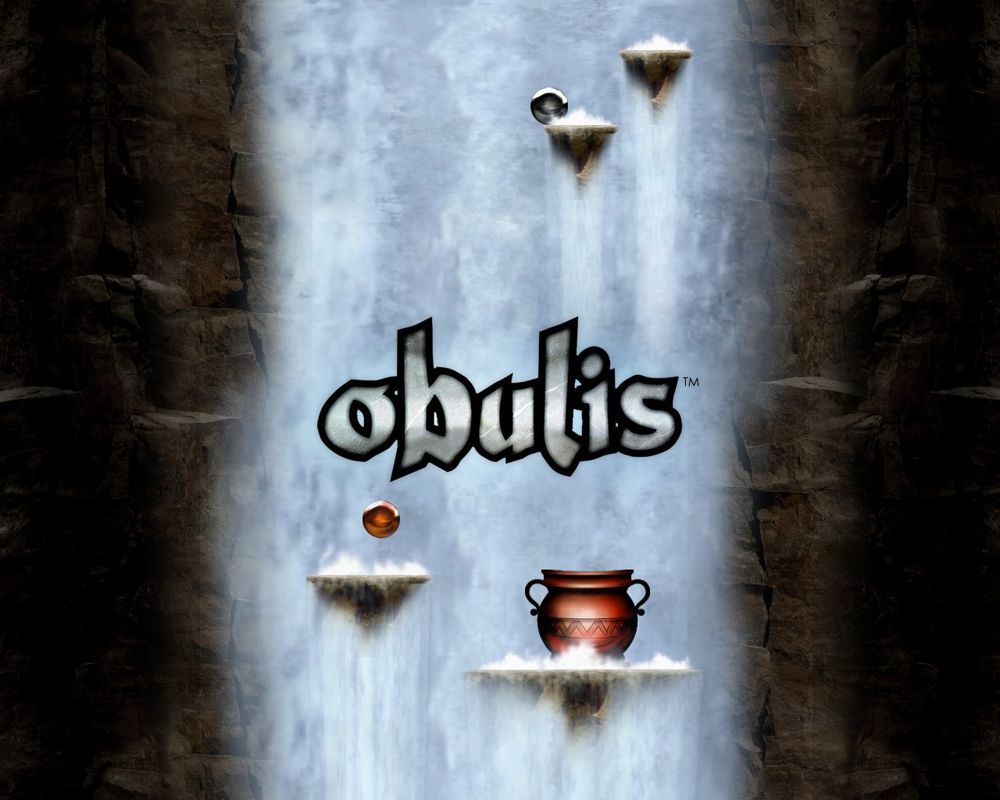Retro Replay Review
Gameplay
Obulis delivers a satisfying physics‐based puzzle experience by challenging players to drop colored spheres into matching pots. Each level presents the spheres suspended on chains, inviting careful planning before cutting. The intuitive controls—selecting a chain with the left mouse button and cutting it with the right mouse button or space bar—make experimentation effortless, encouraging players to discover the optimal cutting sequence.
(HEY YOU!! We hope you enjoy! We try not to run ads. So basically, this is a very expensive hobby running this site. Please consider joining us for updates, forums, and more. Network w/ us to make some cash or friends while retro gaming, and you can win some free retro games for posting. Okay, carry on 👍)
As you progress, the puzzles gradually introduce new obstacles and mechanics that demand precision and timing. Early levels focus on simple drops, while later stages incorporate moving platforms, angled surfaces, and multiple spheres that interact in complex ways. You’ll find yourself replaying puzzles, honing your approach to trigger chain reactions and maximize your chances of getting every sphere to its correspondingly colored pot.
Obulis’s world map structure adds an extra layer of engagement. While progression is mostly linear, occasional branching paths let you choose which set of puzzles to tackle next. Collecting six medallions from special levels unlocks further regions, and gathering bonus tile pieces motivates you to perfect each stage. This map‐based progression ensures the game feels like an unfolding journey rather than a mere sequence of standalone mind-benders.
Graphics
The visual presentation of Obulis is clean, crisp, and purposefully minimalist. Against a neutral background, the brightly colored spheres and pots stand out clearly, making it easy to focus on the core puzzle without distraction. Simple shading and smooth edges lend the game a polished look, while the color-coding of elements is both functional and aesthetically pleasing.
Chain and sphere animations are fluid and realistic, showcasing the underlying physics engine at work. When a chain is cut, the sphere swings and collides with nearby objects in a lifelike manner, complete with satisfying rebounds and subtle rotational spins. These small details—like the gentle sway of a hanging chain or the bounce of a sphere against a wall—enhance immersion and reward you with visual feedback for each successful maneuver.
On the world map, tiles representing each level are adorned with distinct icons: standard puzzles, medallion challenges, and bonus piece stages. This clear iconography helps players track their accomplishments and plan their next moves. Though the overall palette remains restrained, occasional background accents and gentle particle effects during level completion add a dash of flair without overwhelming the puzzle‐centred action.
Story
Obulis doesn’t lean on a deep narrative but still weaves a light thematic thread through its level progression. The quest to collect six medallions introduces a sense of purpose beyond mere puzzle completion. Each medallion level is marked on the map, hinting at a progression system that rewards skill and thoroughness.
The game’s “story” emerges through its world map design, subtly suggesting that each tile you conquer brings you closer to unlocking hidden territories. Bonus tile pieces act as narrative breadcrumbs, encouraging you to revisit levels for perfect runs. Though there are no characters or cutscenes, the medallion mechanics provide a unifying goal that keeps the experience cohesive and gives each puzzle a contextual place in your journey.
By offering choices at certain map junctures, Obulis allows you to craft your own path, effectively making the world map your storybook. Your achievements—be it earning a hard-won medallion or piecing together a bonus tile—become the milestones of the game’s understated narrative, giving you a personal tale of perseverance and clever problem-solving.
Overall Experience
Obulis strikes an excellent balance between accessibility and depth, making it a standout title for fans of physics puzzles and newcomers alike. Simple mechanics mask a rich layer of strategic possibilities, ensuring that each level feels fresh and rewarding. The progression system—anchored by medallions and bonus tiles—adds replay value and a sense of accomplishment that few puzzle games manage so gracefully.
Performance is rock-solid across all tested platforms, with fast load times and consistent frame rates even when multiple spheres collide on screen. The sound design is equally dependable, featuring subtle cues that reinforce successful cuts and level completions without overshadowing the gameplay. Together, these elements form a cohesive package that runs smoothly and looks great from start to finish.
Overall, Obulis offers a compelling purchase for anyone seeking a polished, thoughtful puzzle experience. Its clear visuals, realistic physics, and engaging progression keep you invested, while the optional challenges and bonus levels cater to completionists. Whether you’re unwinding with a quick puzzle fix or diving deep into intricate level designs, Obulis provides hours of challenging entertainment.
 Retro Replay Retro Replay gaming reviews, news, emulation, geek stuff and more!
Retro Replay Retro Replay gaming reviews, news, emulation, geek stuff and more!









Reviews
There are no reviews yet.